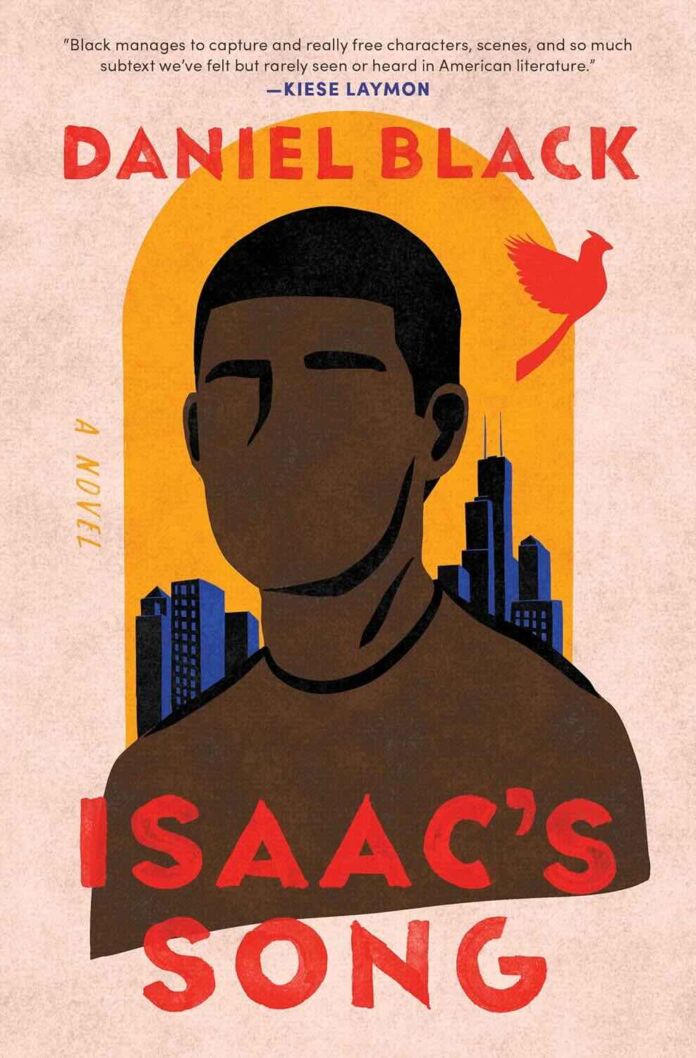In his latest novel “Isaac’s Song,” Daniel Black crafts a deeply moving narrative that weaves together themes of sexuality, race, family trauma, and self-discovery against the backdrop of 1980s America. Following his acclaimed works “Don’t Cry for Me” and “Perfect Peace,” Black returns with perhaps his most ambitious and personally resonant story yet. Through the journey of Isaac Swinton, a young gay Black man navigating life in Chicago, Black examines the complex intersections of masculinity, artistic expression, and generational wounds with remarkable sensitivity and insight.
A Story of Breaking Free
The novel opens with Isaac grappling with the recent death of his father Jacob, a stern patriarch whose rigid expectations shaped much of Isaac’s early life in Kansas City. Through therapy sessions and a return to writing, Isaac begins unpacking years of suppressed emotions and complicated family dynamics. Black masterfully structures the narrative as both a coming-of-age tale and a broader meditation on how trauma passes through generations of Black families.
Artistry in Storytelling
One of the novel’s greatest strengths lies in Black’s intricate layering of storylines. As Isaac processes his relationship with his father, he finds himself writing a historical novel about two enslaved brothers separated in childhood. This story-within-a-story device could feel contrived in less skilled hands, but Black uses it to powerful effect, drawing profound parallels between past and present struggles for freedom and self-expression.
Critical Analysis
Strengths
- Character Development: Black excels at crafting complex, fully realized characters whose flaws and virtues feel deeply human. Isaac’s evolution from a conflicted young man to an artist embracing his truth is particularly well-rendered.
- Historical Resonance: The parallel narrative of the enslaved brothers adds rich historical context while illuminating modern-day struggles.
- Prose Style: Black’s writing seamlessly blends poetic flourishes with raw emotional honesty.
- Thematic Depth: The exploration of father-son relationships, sexuality, and artistic expression is nuanced and thought-provoking.
Areas for Improvement
- The pacing occasionally slows during extended therapy sequences
- Some readers may find the supernatural elements in later chapters jarring
- Certain supporting characters could be more fully developed
- The resolution of some plot threads feels slightly rushed
Cultural Impact and Relevance
Black situates the story within pivotal moments of recent history—the AIDS crisis, the Rodney King beating—while exploring timeless themes of identity and belonging. The novel’s examination of queerness in Black communities feels especially vital in today’s conversations about intersectionality and representation.
Literary Merit
Black’s prose demonstrates remarkable range, moving fluidly between:
- Intimate character studies
- Historical fiction
- Magical realism
- Social commentary
The author’s background in African American studies enriches the narrative with cultural and historical depth that elevates it beyond simple drama.
Comparison to Other Works
While “Isaac’s Song” shares DNA with works like Ocean Vuong’s “On Earth We’re Briefly Gorgeous” and Rebecca Makkai’s “The Great Believers” in its exploration of queer experience and generational trauma, Black’s voice remains distinctly his own. Fans of his previous novels will recognize his characteristic blend of historical awareness and emotional authenticity.
Impact and Resonance
What makes “Isaac’s Song” particularly powerful is its unflinching look at how families can both wound and heal. Black doesn’t offer easy answers but instead presents:
- The complexity of forgiveness
- The role of art in processing trauma
- The importance of claiming one’s truth
- The power of ancestral connections
Writing Style and Technical Elements
Black’s prose strikes an impressive balance between:
- Lyrical beauty and stark realism
- Personal intimacy and universal themes
- Historical weight and contemporary relevance
- Narrative momentum and emotional depth
Final Verdict
“Isaac’s Song” represents another significant achievement in Black’s growing body of work. While not without minor flaws, the novel succeeds brilliantly in its core mission—telling a deeply human story about finding one’s voice amid familial and societal pressures.
Recommended for readers who:
- Appreciate literary fiction with historical elements
- Enjoy complex family dynamics
- Seek authentic LGBTQ+ narratives
- Value stories about artistic awakening
- Are interested in Black American experiences
May not appeal to those who:
- Prefer straightforward linear narratives
- Are uncomfortable with supernatural elements
- Want quick plot resolution
- Avoid emotional intensity
Lasting Impression
“Isaac’s Song” lingers in the mind long after the final page, prompting reflection on how we inherit and transcend family legacies. Black has created a work that speaks powerfully to current conversations about identity while honoring the historical contexts that shape modern lives.
Cultural Significance
In an era of increasing awareness around intersectional identities, “Isaac’s Song” makes a vital contribution to literature exploring the complexities of being both Black and queer in America. The novel doesn’t just tell a story – it opens up important conversations about how we understand and accept ourselves and others.
Historical Context
Black expertly weaves historical elements throughout the narrative, demonstrating how past traumas echo through generations while offering hope for healing and transformation. The novel serves as both a mirror of contemporary struggles and a window into historical experiences that continue to shape American society.
Conclusion
Despite minor shortcomings, “Isaac’s Song” stands as a testament to Black’s evolving mastery as a storyteller. It’s a novel that demands to be read not just for its compelling narrative, but for its vital contribution to ongoing discussions about identity, family, and the power of artistic expression in healing generational wounds.





